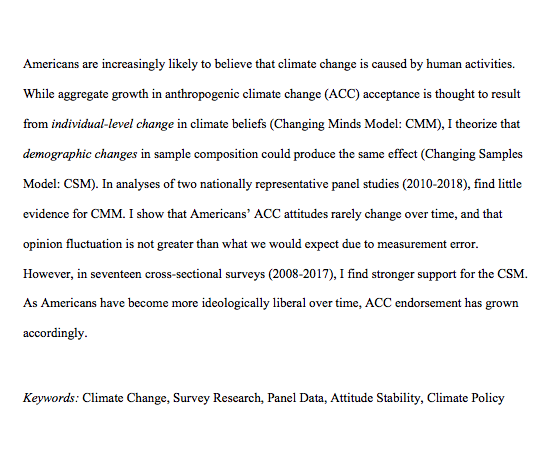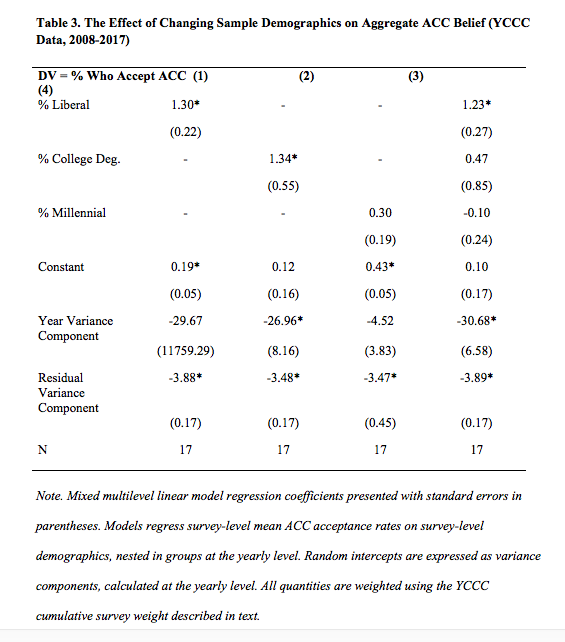
NEW at IJPOR - I show that aggregate change in anthropogenic climate change beliefs is less the result of attitude change ("changing minds") and more the result of demographic changes in sample composition ("changing samples.")
[THREAD]
academic.oup.com/ijpor/advance-…



[THREAD]
academic.oup.com/ijpor/advance-…




Before summarizing the study, HUGE shoutout to the folks at C[C]ES, @pewresearch, and @YaleClimateComm who did the hard work of collecting the panel and cross-sec. data used in this study, and for making it free for all to use. 

Next, some background: tracking polls have documented increases in the number of Americans who believe that climate change is human caused (anthropogenic: "ACC"), over the past decade. This could result from one of two sources.
OTOH: it could reflect attitude change at the individual level ("Changing Minds"). If true, we'd expect to see panelists in longitudinal studies "convert" their view in a pro-ACC direction, over time.
OTOH: it could reflect broader demo. changes in sample composition. If true, shifts in factors assoc. w/pro-ACC views (e.g., ideo. liberalism) should gradually make up a greater % of cross-sec. samples. ("Changing Samples").
In nationally representative panel data from CCES & Pew, I find little evidence of changing minds. Two key reasons why:
1. Few people revise their opinions on ACC *at all* over time (i.e., the dynamic reliability of ACC beliefs is quite strong) 

2. The number of pro-ACC converts is similar in size to the number of anti-ACC converts; and typically not statistically different from the amount of movement we'd expect by random chance. 

However, I find much more evidence of changing samples. In cross-sec. data from @YaleClimateComm, representative samples have changed in ways consistent with ACC acceptance. 



For example, note the high degree of correspondence between the dashed blue line (% of liberals in samples) and the solid green line (% accept ACC). These findings hold in multilevel, multivariate models. 



This work underscores the importance of continuing to track ACC beliefs longitudinally and cross-sectionally over time. This can help us disentangle the potential causes of change in climate attitudes.
It also has important #scicomm implications. Attitude change is rare, and difficult. We should make more effort to detect long-term changes in ACC belief in response to clim. comm. and other .
• • •
Missing some Tweet in this thread? You can try to
force a refresh


